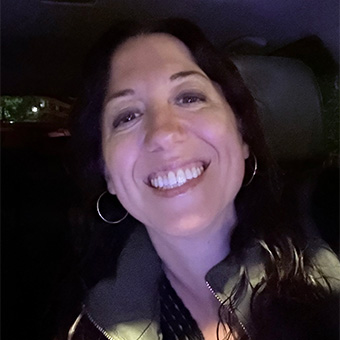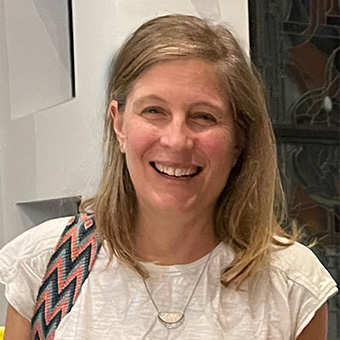Teaching and Practice in "Crowded Classrooms"
This research group brings together a dynamic cohort of 6-8 educators engaged in teacher research under the mentorship of Professor Ziva Hassenfeld. In 2024 Professor Hassenfeld published her first book, The Second Conversation: Interpretive Authority in the Bible Classroom, a powerful proposal for how best to induct students into rich reading practices that was all rooted in her own teacher research. As a postdoctoral fellow, Hassenfeld received a grant to return to the 7th-grade biblical literacy classroom to teach and study her teaching. Hassenfeld firmly believes that teacher research must be centered in the field of education scholarship. This research group is a direct expression of this conviction.
Participants in this research group, all conducting teacher research under the direction of Professor Hassenfeld and/or her colleague Professor Rachel Kramer Theodorou, span a wide range of teaching and professional experience, from undergraduate students completing their practicum at Brandeis, to novice teachers (and Brandeis graduates), to postdoctoral fellows, to seasoned professionals transitioning into education from fields like journalism. Despite their varied backgrounds, these educators share a commitment to inquiry-driven, student-centered pedagogy and a common methodological approach: conducting research rooted in their own teaching practice.
The group will meet monthly to share, discuss, and workshop each member’s evolving research. Projects explore diverse yet overlapping themes, including language and multilingualism, reading and writing instruction, race, religion, gender, and cross-national teaching contexts. The goal of the group is twofold: to support each participant in completing a research project, ranging from undergraduate theses to full-length articles, and to foster a community of reflective practitioners. By the end of the year, participants will not only have deepened their understanding of their own practice but also contributed to a broader conversation about teaching and learning, with the aspirational aim of submitting their work for publication, perhaps as part of a special journal issue.
Research Group Members
Expand All
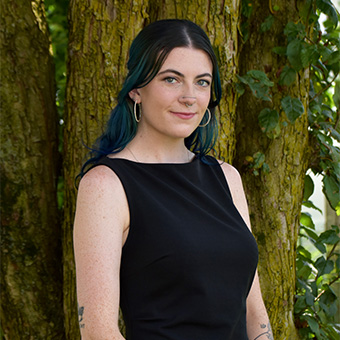 Aileen Cahill ‘23 is an English Learner (EL) teacher at a public high school outside Boston and a graduate of Brandeis University. She has worked as a substitute teacher, a co-teacher for elementary EL in a dual-language school in Madrid, and now teaches high school EL while pursuing her M.Ed. in TESOL at Framingham State University. As an undergraduate, she was a research assistant on education history projects and began working with Ziva Hassenfeld on studies of classroom literature, language teaching, and pedagogy. Her current classroom-based research examines how religion shapes EL students’ experiences in public schools, combining teacher journaling and curriculum analysis, and eventually classroom observations and formal recordings. She is committed to addressing the lack of teacher preparation around religious diversity and contention in culturally responsive education. She aims to help educators better meet the needs of immigrant students by integrating awareness of religion into inclusive teaching practices.
Aileen Cahill ‘23 is an English Learner (EL) teacher at a public high school outside Boston and a graduate of Brandeis University. She has worked as a substitute teacher, a co-teacher for elementary EL in a dual-language school in Madrid, and now teaches high school EL while pursuing her M.Ed. in TESOL at Framingham State University. As an undergraduate, she was a research assistant on education history projects and began working with Ziva Hassenfeld on studies of classroom literature, language teaching, and pedagogy. Her current classroom-based research examines how religion shapes EL students’ experiences in public schools, combining teacher journaling and curriculum analysis, and eventually classroom observations and formal recordings. She is committed to addressing the lack of teacher preparation around religious diversity and contention in culturally responsive education. She aims to help educators better meet the needs of immigrant students by integrating awareness of religion into inclusive teaching practices.
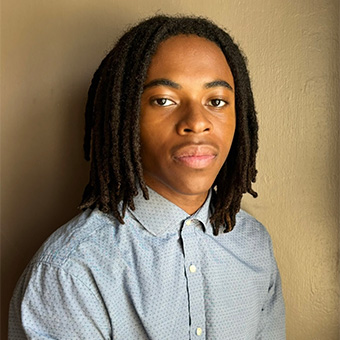
Marcel Harris '26 is conducting teacher research to examine how different instructional approaches impact student autonomy and engagement in learning new mathematical concepts. His study, based on his summer teaching in New York City and informed by reflections from teaching abroad in Namibia, compares a traditional, teacher-directed model with a student-led, inquiry-based model. Over a four-day instructional cycle, he alternates between the two approaches to see which better supports deeper schema development, independent reasoning, and active participation.
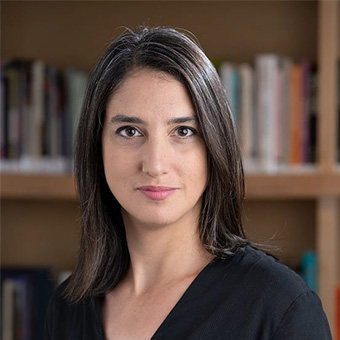
Besides teaching at Harvard, Romy Newmark is also a fellow at the Schusterman Center at Brandeis this year and will join this group with her own teacher research. She is interested in how her language course, taught from her years of experience in the newsroom, helps her students explore questions of trust and media. Specifically, she will examine how thinking in a second language facilitates thinking about trust, media, stories, reading, and perspective. Can new insights happen when we enter the "new selves" that foreign languages allow for (Kramsch, 2009)?
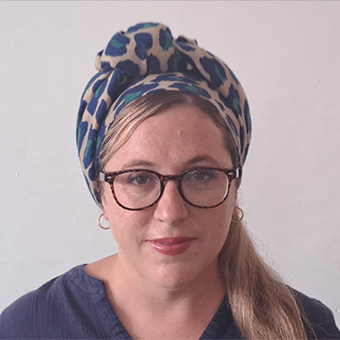
Dr. Michal Shapira-Junger is a Jewish education researcher specializing in teachers' professional identity and pedagogical practices across diverse contexts. Her research focuses on teachers' personal and professional identity and teaching practices at multicultural intersections, such as teaching emissaries in the Jewish diaspora and bi-national schools in Israel. Currently, she is conducting postdoctoral research at Brandeis University under the supervision of Professor Hassenfeld, focusing on teaching Biblical Hebrew as a second language. Alongside her Hebrew teaching research, Dr. Shapira-Junger continues her studies on educational emissaries.
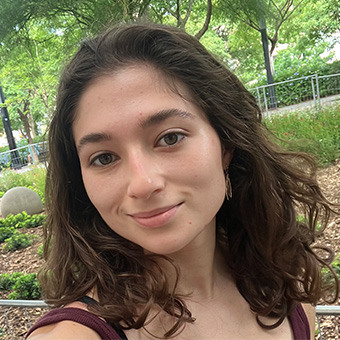
Rachel Shpuntoff ‘26 is a senior at Brandeis University studying Elementary Education. She is teaching 4th grade at the Dual Language School in Waltham this year. She grew up in Argentina with an Argentinian mother and an American father and attended public schools in Queens, New York and Buenos Aires. Rachel was raised bilingual and has always been interested in working with multilingual students/spaces. She is also a writer and poet and her work this year will focus on exploring generative reading and writing practices through teaching poetry.
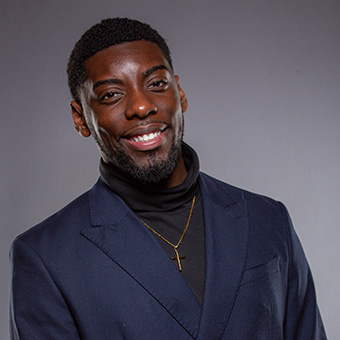
Zaire Simmonds ’26 is a senior at Brandeis University majoring in Education Studies, with a focused aspiration to become a secondary mathematics educator. Grounded in his lived experiences and driven by a deep commitment to educational equity, Zaire’s academic and professional pursuits center around the intersection of identity, representation, and curriculum development, particularly in underserved and historically marginalized communities.
As the middle child of a single mother in a low-income household, Zaire experienced firsthand the transformative power of education and the consequences of its absence. His early recognition of the lack of racial, cultural, and identity-based representation in both the classroom and curriculum in US education served as the catalyst for his dedication to the field of education. He believes that who we are as educators shapes what and how we teach. This conviction underpins his desire to foster learning environments that are inclusive, affirming, and grounded in students’ lived realities.
Zaire’s current senior thesis, "Identity and Pedagogy: Teaching While Black," examines the impact of racial, cultural, and gender identity on teaching practice. This qualitative research draws upon reflective journals and field notes from his teaching experiences in both Bath, England, through the Advanced Studies in England (ASE) program, and his experience in The Bronx, New York, from both his teaching in a public and a charter school.
 Aileen Cahill ‘23 is an English Learner (EL) teacher at a public high school outside Boston and a graduate of Brandeis University. She has worked as a substitute teacher, a co-teacher for elementary EL in a dual-language school in Madrid, and now teaches high school EL while pursuing her M.Ed. in TESOL at Framingham State University. As an undergraduate, she was a research assistant on education history projects and began working with Ziva Hassenfeld on studies of classroom literature, language teaching, and pedagogy. Her current classroom-based research examines how religion shapes EL students’ experiences in public schools, combining teacher journaling and curriculum analysis, and eventually classroom observations and formal recordings. She is committed to addressing the lack of teacher preparation around religious diversity and contention in culturally responsive education. She aims to help educators better meet the needs of immigrant students by integrating awareness of religion into inclusive teaching practices.
Aileen Cahill ‘23 is an English Learner (EL) teacher at a public high school outside Boston and a graduate of Brandeis University. She has worked as a substitute teacher, a co-teacher for elementary EL in a dual-language school in Madrid, and now teaches high school EL while pursuing her M.Ed. in TESOL at Framingham State University. As an undergraduate, she was a research assistant on education history projects and began working with Ziva Hassenfeld on studies of classroom literature, language teaching, and pedagogy. Her current classroom-based research examines how religion shapes EL students’ experiences in public schools, combining teacher journaling and curriculum analysis, and eventually classroom observations and formal recordings. She is committed to addressing the lack of teacher preparation around religious diversity and contention in culturally responsive education. She aims to help educators better meet the needs of immigrant students by integrating awareness of religion into inclusive teaching practices.

 Dr. Michal Shapira-Junger is a Jewish education researcher specializing in teachers' professional identity and pedagogical practices across diverse contexts. Her research focuses on teachers' personal and professional identity and teaching practices at multicultural intersections, such as teaching emissaries in the Jewish diaspora and bi-national schools in Israel. Currently, she is conducting postdoctoral research at Brandeis University under the supervision of Professor Hassenfeld, focusing on teaching Biblical Hebrew as a second language. Alongside her Hebrew teaching research, Dr. Shapira-Junger continues her studies on educational emissaries.
Dr. Michal Shapira-Junger is a Jewish education researcher specializing in teachers' professional identity and pedagogical practices across diverse contexts. Her research focuses on teachers' personal and professional identity and teaching practices at multicultural intersections, such as teaching emissaries in the Jewish diaspora and bi-national schools in Israel. Currently, she is conducting postdoctoral research at Brandeis University under the supervision of Professor Hassenfeld, focusing on teaching Biblical Hebrew as a second language. Alongside her Hebrew teaching research, Dr. Shapira-Junger continues her studies on educational emissaries.


